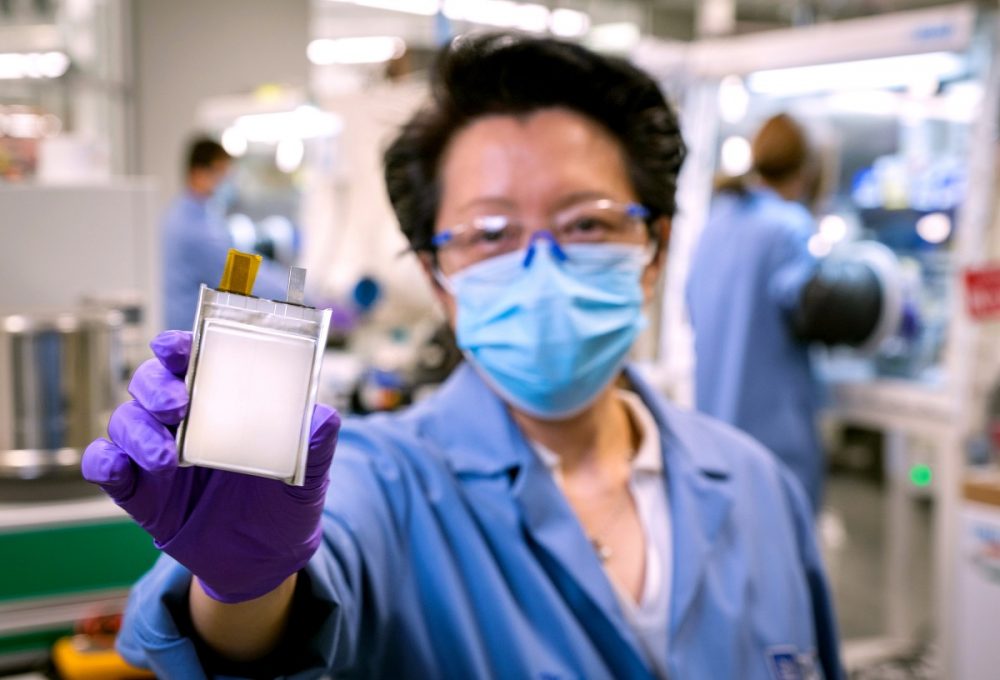600 Miles of EV Range? New GM Partnership Could Make This a Reality

Photo: Steve Fecht for GM
A new partnership could help General Motors produce electric vehicles with far more range than what’s possible with current technology.
Coming Soon: Meet the new 2022 Chevrolet Bolt EV and Bolt EUV
According to the Detroit Free Press, lithium metal battery tech that GM is developing with Singapore-based SolidEnergy Systems could allow future vehicles to travel 500 to 600 miles on a single charge — at a price point that makes them accessible to more buyers.
Big news for GM EV range and costs
This technology, which GM refers to as “Li-Metal,” allows for much greater energy density. That means vehicles that use it could either achieve a much longer driving range without increasing in weight, or keep their current range while getting lighter and more affordable.
“Affordability and range are two major barriers to mass EV adoption,” said GM President Mark Reuss. “With this next-generation Ultium chemistry, we believe we’re on the cusp of a once-in-a-generation improvement in energy density and cost. There’s even more room to improve in both categories, and we intend to innovate even faster than any other company in this space.”
Stylish and Sporty SUV: Get the details on the 2021 Buick Encore GX

Photo: Steve Fecht for GM
GM’s new Li-Metal tech partnership would represent a major advanced beyond the first generation of Ultium-powered vehicles, which will start hitting the market later this year. These EVs will offer estimated driving ranges that could reach 350 or 400 miles. Cadillac and GMC models on this platform are already planned. Reuss said new Chevrolet EVs could be announced soon as well.
GM began investing in SolidEnergy’s technologies six years ago. Now the two companies are connected even more closely via a joint development agreement. They’ll start by building a new manufacturing prototyping line in Massachusetts. Its goal: turning out a high-capacity, pre-production battery by 2023.
The last year has already seen a flurry of new EV investments from GM. With this latest announcement, the automaker appears poised to make even more significant EV production strides in the coming decade.
A longtime editor/writer and recently transplanted Hoosier, Caleb Cook lives in Xenia, Ohio. His favorite activities are reading and listening to music, although he occasionally emerges from the heap of books and vinyl records in his basement to stand blinking in the sunlight. Once fully acclimated to the outside world again, he can be observed hanging out with his wife, attempting a new recipe in the kitchen, attending movies, walking the dog, or wandering into a local brewery to inquire about what’s on tap. See more articles by Caleb.

